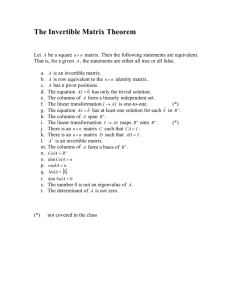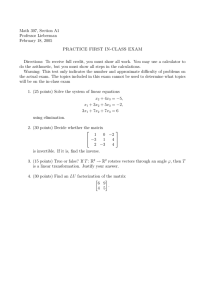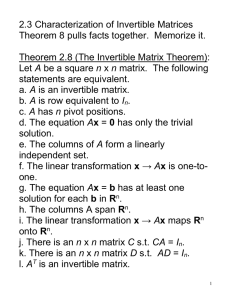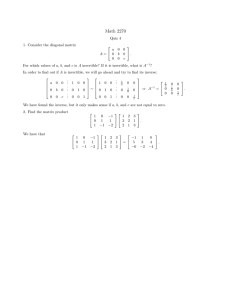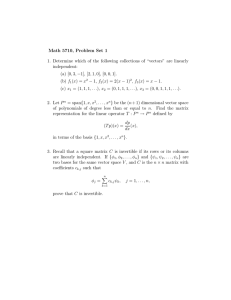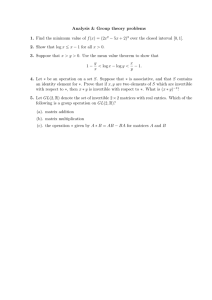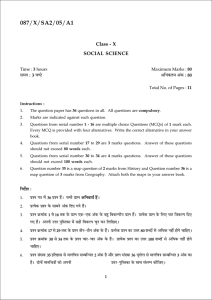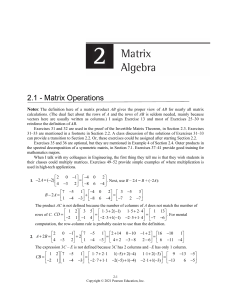Quiz 4 Solutions 1. Determine if the given statement is true or false
advertisement
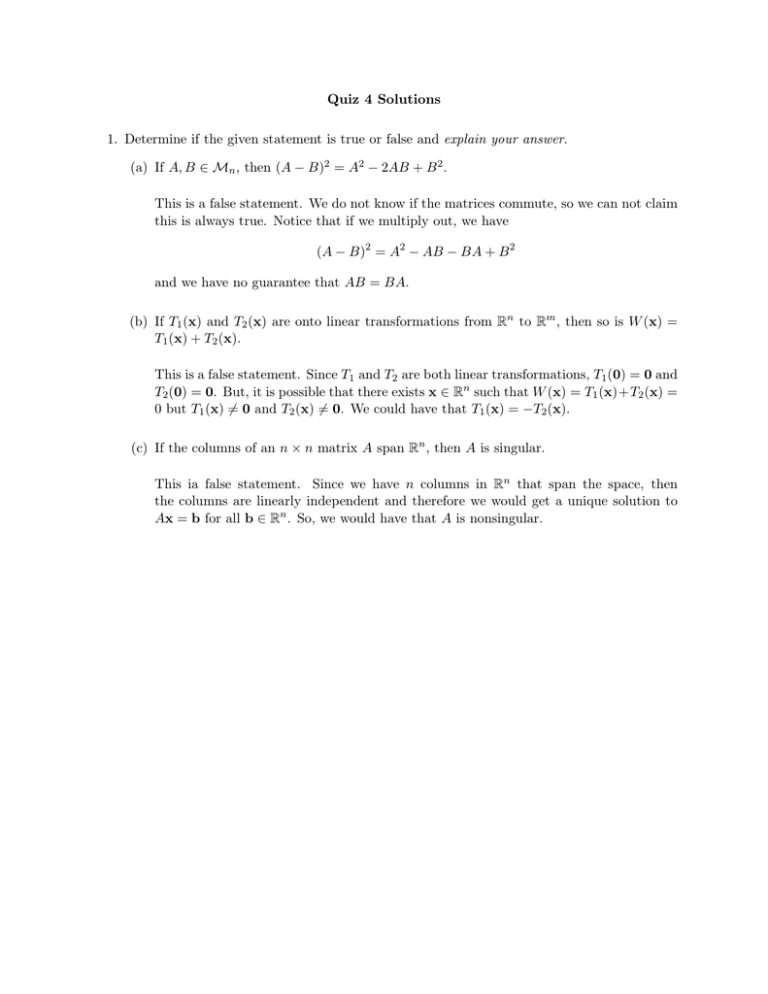
Quiz 4 Solutions 1. Determine if the given statement is true or false and explain your answer. (a) If A, B ∈ Mn , then (A − B)2 = A2 − 2AB + B 2 . This is a false statement. We do not know if the matrices commute, so we can not claim this is always true. Notice that if we multiply out, we have (A − B)2 = A2 − AB − BA + B 2 and we have no guarantee that AB = BA. (b) If T1 (x) and T2 (x) are onto linear transformations from Rn to Rm , then so is W (x) = T1 (x) + T2 (x). This is a false statement. Since T1 and T2 are both linear transformations, T1 (0) = 0 and T2 (0) = 0. But, it is possible that there exists x ∈ Rn such that W (x) = T1 (x)+T2 (x) = 0 but T1 (x) 6= 0 and T2 (x) 6= 0. We could have that T1 (x) = −T2 (x). (c) If the columns of an n × n matrix A span Rn , then A is singular. This ia false statement. Since we have n columns in Rn that span the space, then the columns are linearly independent and therefore we would get a unique solution to Ax = b for all b ∈ Rn . So, we would have that A is nonsingular. 2. Determine if the given linear transformation is invertible and if so, find T −1 . x1 4x1 + 3x2 T = x2 3x1 + 2x2 First, we write this transformation as a square matrix. A= 4 3 3 2 Since the determinant is 8 − 9 = −1 6= 0, we have that the matrix is invertible and therefore the transformation is invertible. To find T −1 , we find A−1 . Using the algorithm, we have A −1 1 = −1 2 -3 -3 4 = -2 3 3 -4 And so, we have T −1 x1 −2x1 + 3x2 = x2 3x1 + −4x2
